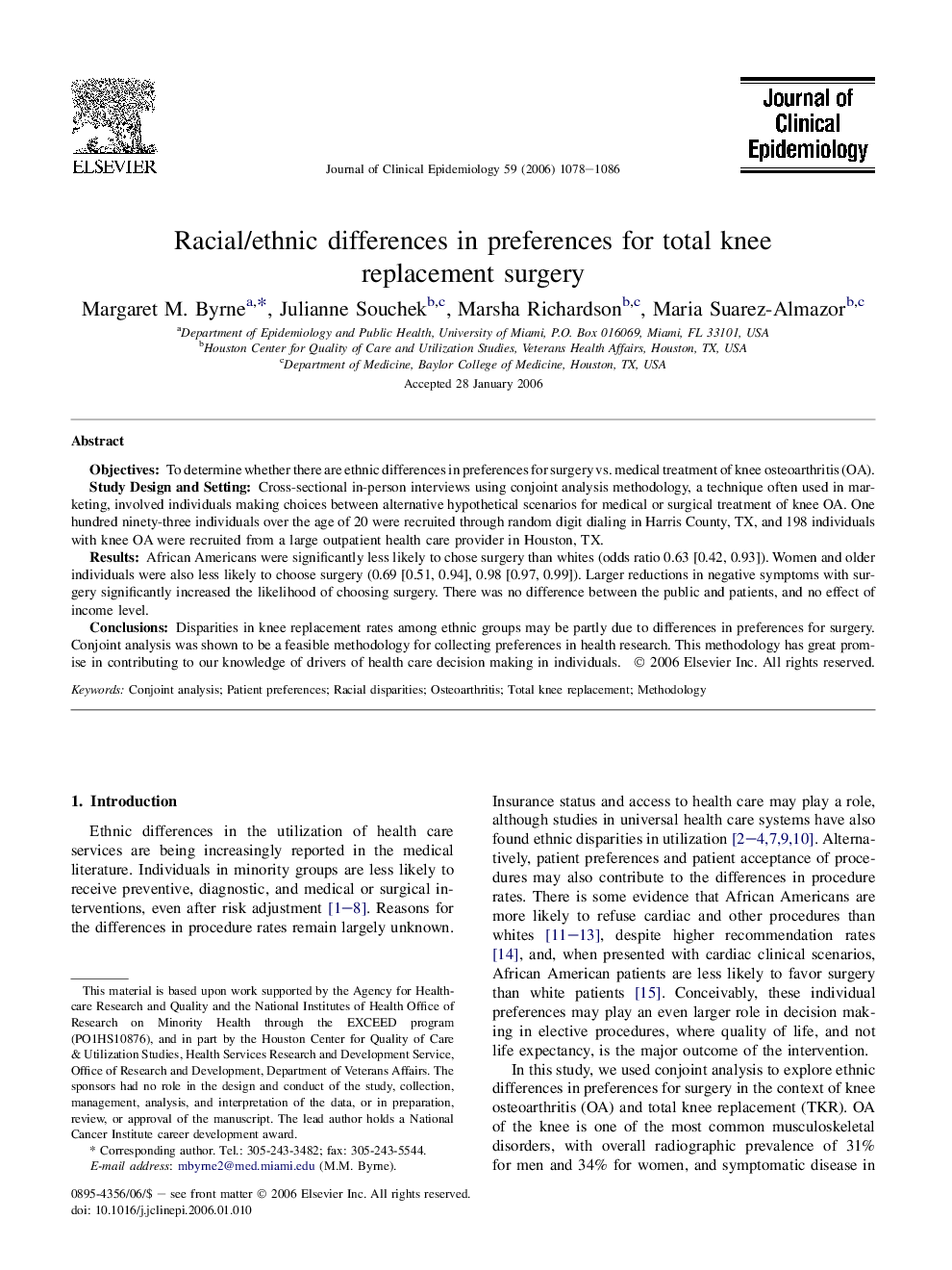| Article ID | Journal | Published Year | Pages | File Type |
|---|---|---|---|---|
| 1083299 | Journal of Clinical Epidemiology | 2006 | 9 Pages |
ObjectivesTo determine whether there are ethnic differences in preferences for surgery vs. medical treatment of knee osteoarthritis (OA).Study Design and SettingCross-sectional in-person interviews using conjoint analysis methodology, a technique often used in marketing, involved individuals making choices between alternative hypothetical scenarios for medical or surgical treatment of knee OA. One hundred ninety-three individuals over the age of 20 were recruited through random digit dialing in Harris County, TX, and 198 individuals with knee OA were recruited from a large outpatient health care provider in Houston, TX.ResultsAfrican Americans were significantly less likely to chose surgery than whites (odds ratio 0.63 [0.42, 0.93]). Women and older individuals were also less likely to choose surgery (0.69 [0.51, 0.94], 0.98 [0.97, 0.99]). Larger reductions in negative symptoms with surgery significantly increased the likelihood of choosing surgery. There was no difference between the public and patients, and no effect of income level.ConclusionsDisparities in knee replacement rates among ethnic groups may be partly due to differences in preferences for surgery. Conjoint analysis was shown to be a feasible methodology for collecting preferences in health research. This methodology has great promise in contributing to our knowledge of drivers of health care decision making in individuals.
